09:42

Argentina celebrates 50 years of diplomatic relations with China this year. I've traveled to the South American country to examine its development, look at the deepening ties with China, and also look at the potential for future collaborations.
I began my travels at Estancia La Republica, a large farm, a few hours from Buenos Aires. Chinese President Xi Jinping visited the Estancia during a state visit to Argentina in 2014. During the visit, President Xi said the two countries should enhance agricultural cooperation and hoped more Chinese consumers would choose Argentina products.

Chinese President Xi Jinping meets Raul Moneta, co-owner of Estancia La Republica during a state visit to Argentina in 2014. / CCTV
Chinese President Xi Jinping meets Raul Moneta, co-owner of Estancia La Republica during a state visit to Argentina in 2014. / CCTV
Since the visit in 2014, it would appear that trade between the two countries has deepened significantly especially in agricultural goods. In 2018, the two countries signed further trade deals as President Xi and Argentine President Mauricio Macri announced more than 30 agricultural and investment deals.
Martin Costantini, CEO of Frigorifico Rioplatense, which is one of Argentina's largest beef processing plants, told me that the Chinese market has become the main market in the world. About 60 percent of their exports go to the Chinese market. All their investments are focused on attending Chinese market, because they are completely assured that this demand will increase.
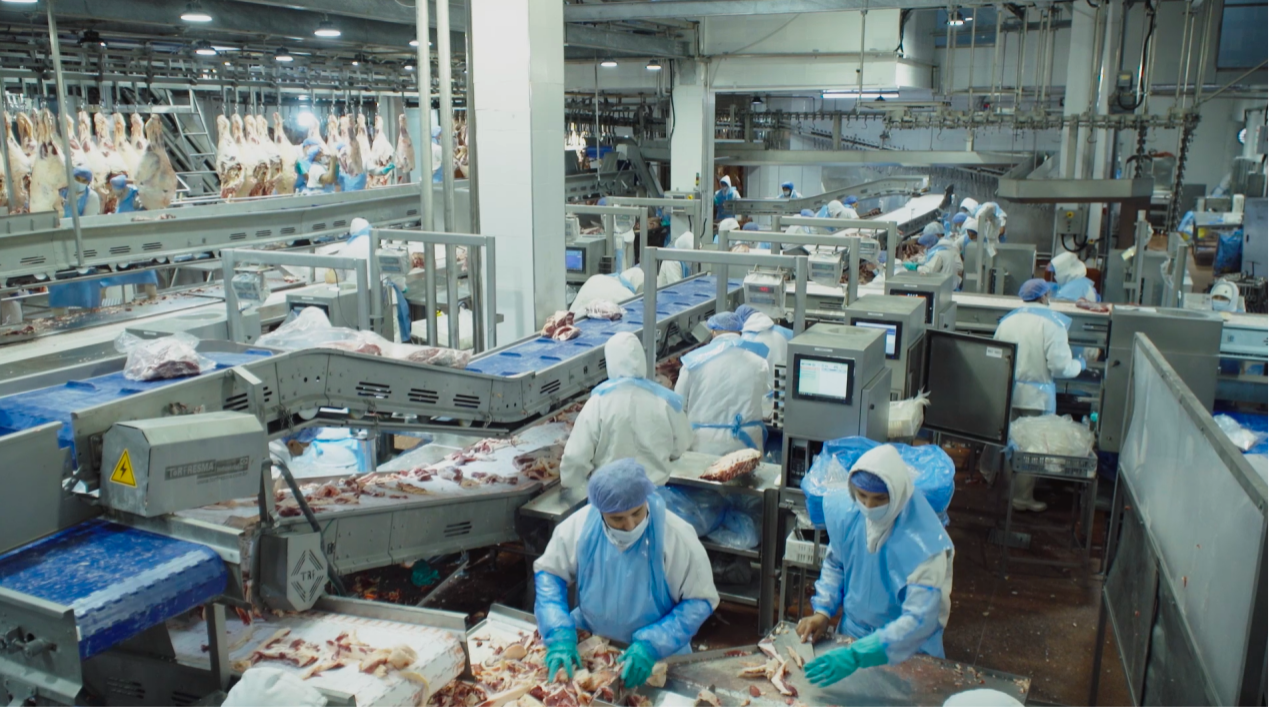
Frigorifico Rioplatense, one of Argentina's largest beef processing plants. /CGTN
Frigorifico Rioplatense, one of Argentina's largest beef processing plants. /CGTN
It's not only agriculture but also green energy that has been the focus for China and Argentina collaborations. Jujuy is a province in the extreme northwest of Argentina, and home to the Salinas Grandes, the third-largest salt flats in the world.

A road to Jujuy, a province in the extreme northwest of Argentina. /CGTN
A road to Jujuy, a province in the extreme northwest of Argentina. /CGTN
I chose my destination for the next stop: the Cauchari Solar Power Plant. It has a total capacity of 300MW. It was built by Power China Construction Company and Shanghai Electric.
Rolando Javier Campos, the power plant inspector told me that this project for the region has a very important influence since it generates significant income for the province of Jujuy. From the social point of view, it improves the quality of life of the local people by offering jobs.
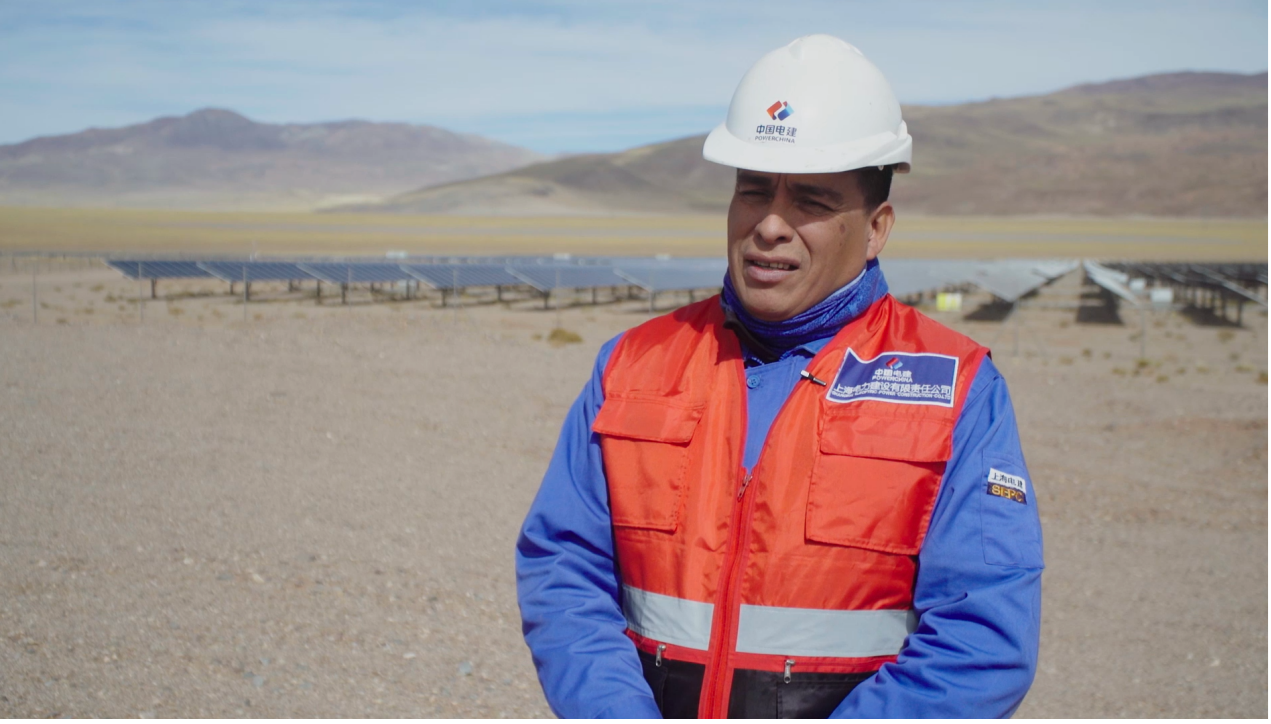
Rolando Javier Campos, inspector of the Cauchari Solar Power Plant. /CGTN
Rolando Javier Campos, inspector of the Cauchari Solar Power Plant. /CGTN
Since the plant was built, the economic activity in the region has increased.
Marcelo Roberto Gotzinger, manager of hotel Pastos Chicos said the change is already noticeable. The town's economic power has grown a lot, and people have begun to have more consistent salaries, according to the manager.
Tu Shuiping, president of PowerChina, Argentina, said Jujuy used to be a province that they always import the energy from the other provinces and even from Chile. With this project they have enough energy which is very good for the living and for the production.
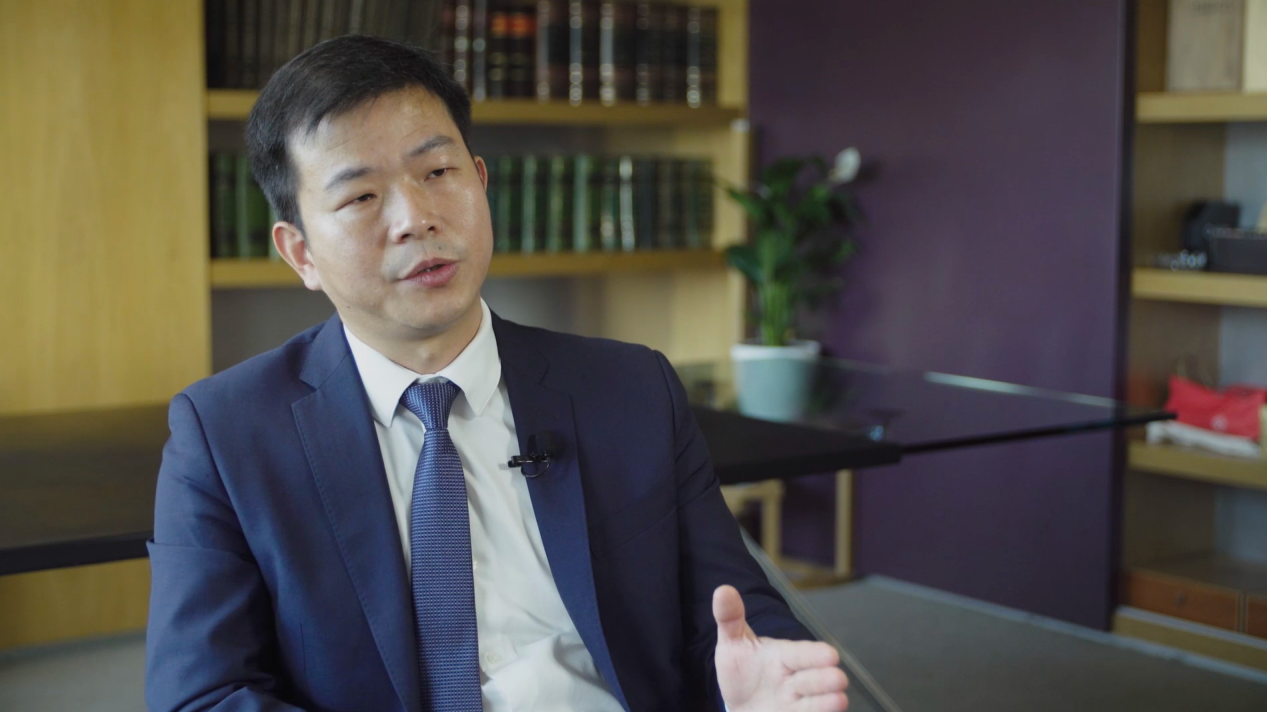
Tu Shuiping, president of PowerChina, Argentina. / CGTN
Tu Shuiping, president of PowerChina, Argentina. / CGTN
Gerardo Morales is the Governor of Jujuy who oversaw the development of the plant. He met with President Xi in 2018. He told me that China has always been very good with deepening the bonds and making investments in Argentina, particularly in Jujuy.
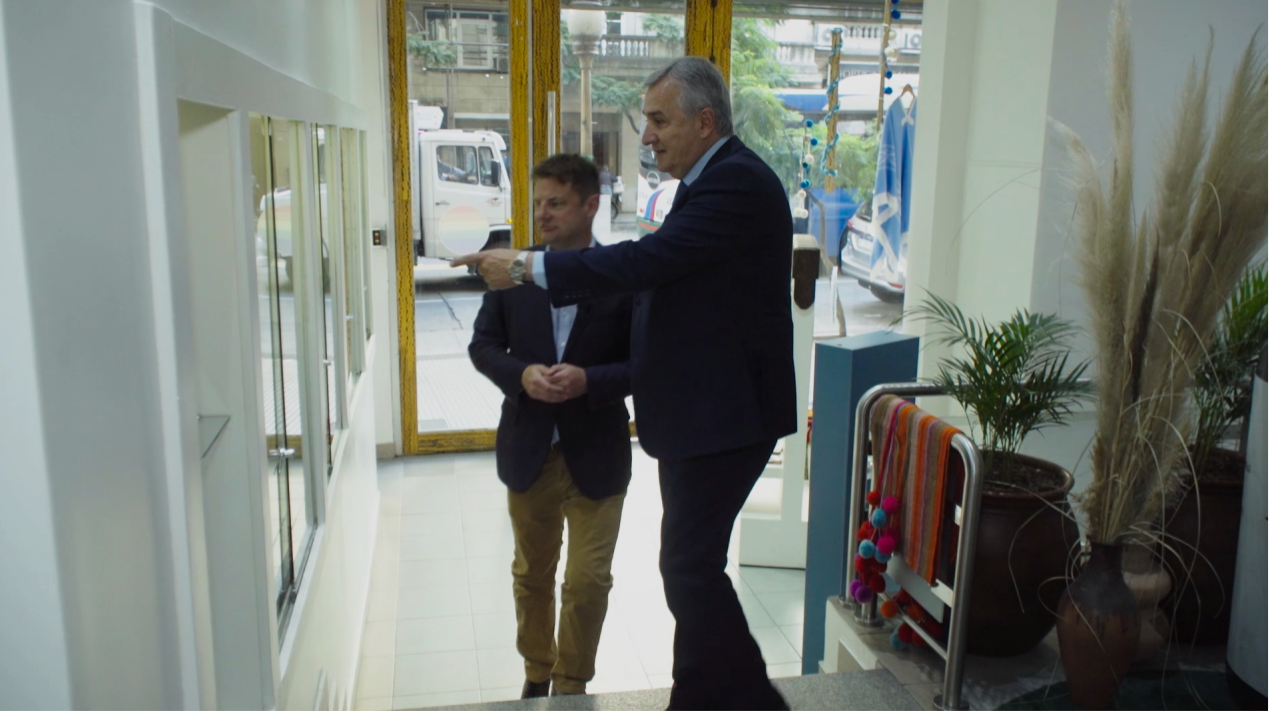
Gerardo Morales, Governor of Jujuy, told me his bond with China. /CGTN
Gerardo Morales, Governor of Jujuy, told me his bond with China. /CGTN
Back in Buenos Aires, I visited La Feria de San Telmo, a vast Sunday market that has taken over the streets of the old downtown area. It perhaps underlines the entrepreneurial spirit of the city as well as the potential for global sales.
In 2018, during the G20 summit, President Xi outlined the importance of embracing the digital economy, promoting e-commerce platforms. One industry that has embraced that is Argentinian wine.
Fanny Villamayor, from Royma Ltd., High Altitude Wine Consortium shared her way doing business with China. By using the modern form of streaming and promoting the product on Chinese social media platforms can further open market in real time.

Fanny Villamayor from Royma Ltd., High Altitude Wine Consortium shares her way of doing business with China. /CGTN
Fanny Villamayor from Royma Ltd., High Altitude Wine Consortium shares her way of doing business with China. /CGTN
Ties between the two countries look set to deepen further. A key focus for Buenos Aires moving forward is on attracting Chinese students, tourists as well as digital nomads.
Francisco Resnicoff from Buenos Aires Undersecretary for International Relations also told me that Argentina has found China, as a very important trading and investment partner. There is an increasing willingness on our side to attract Chinese companies, Chinese visitors, and Chinese students. So that's our strategy. But the relation has been growing for the last few years for the last few decades. And they want to remain so.
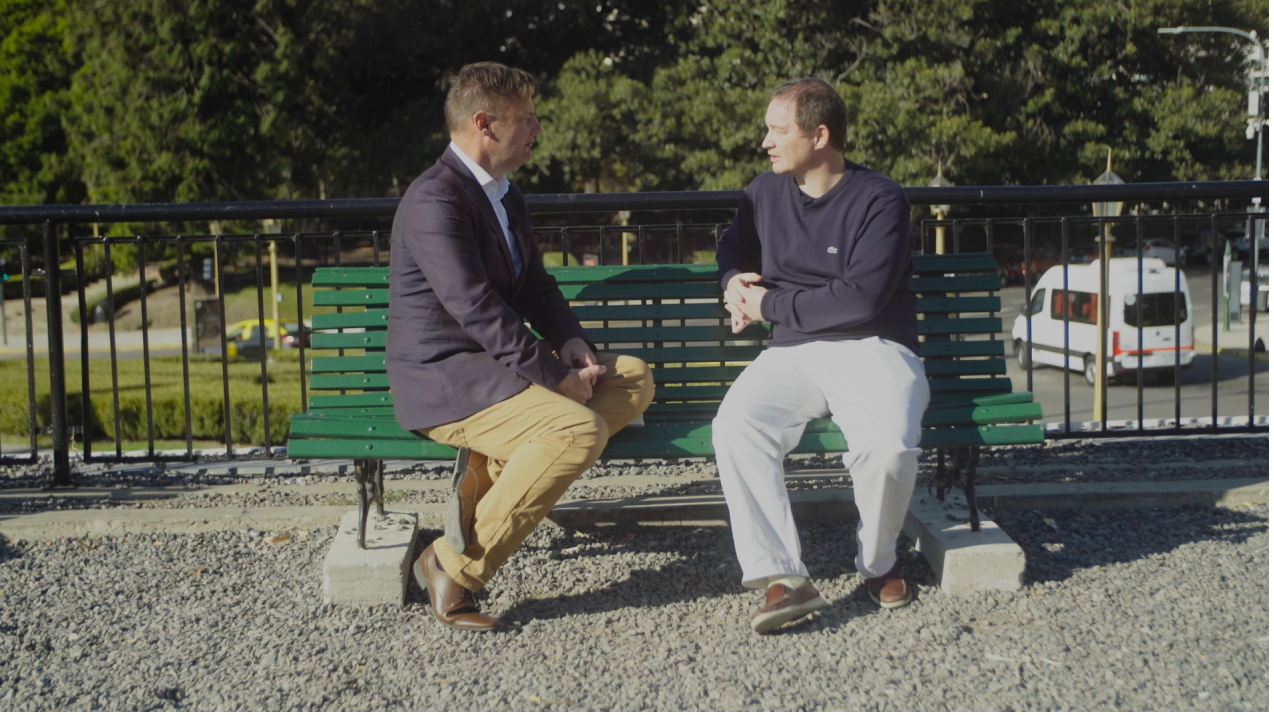
Francisco Resnicoff from Buenos Aires Undersecretary for International Relations talks about his vision on China-Argentina ties. /CGTN
Francisco Resnicoff from Buenos Aires Undersecretary for International Relations talks about his vision on China-Argentina ties. /CGTN
As I depart, Argentina, I reflect on the ties between China and Argentina – two countries separated by almost 20,000 kilometers, just as President Xi said in 2014 that "bosom friends make distance disappear." On this evidence, that appears to be a sentiment that resonates across Argentina.

